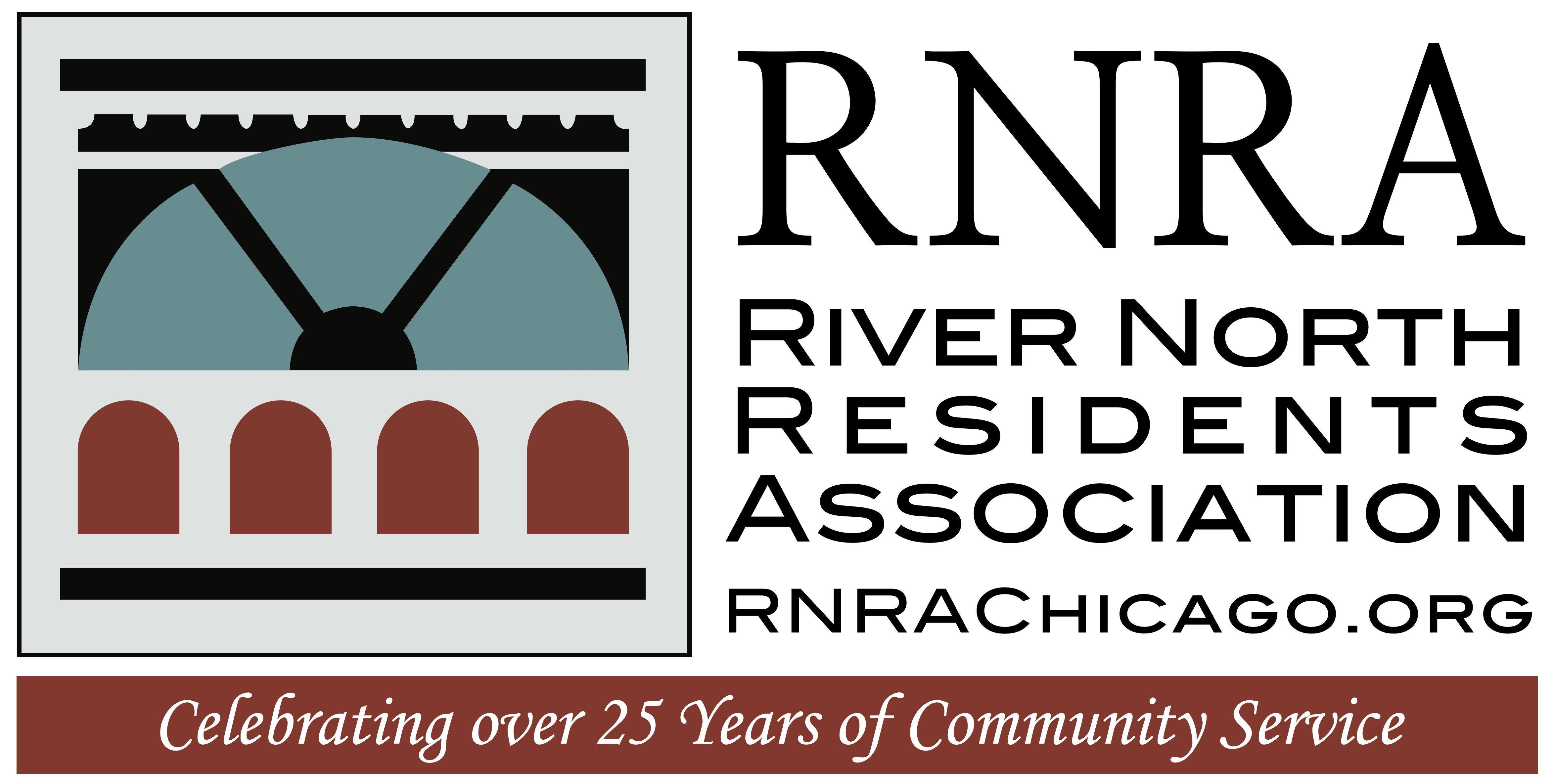To print a copy, CLICK HERE
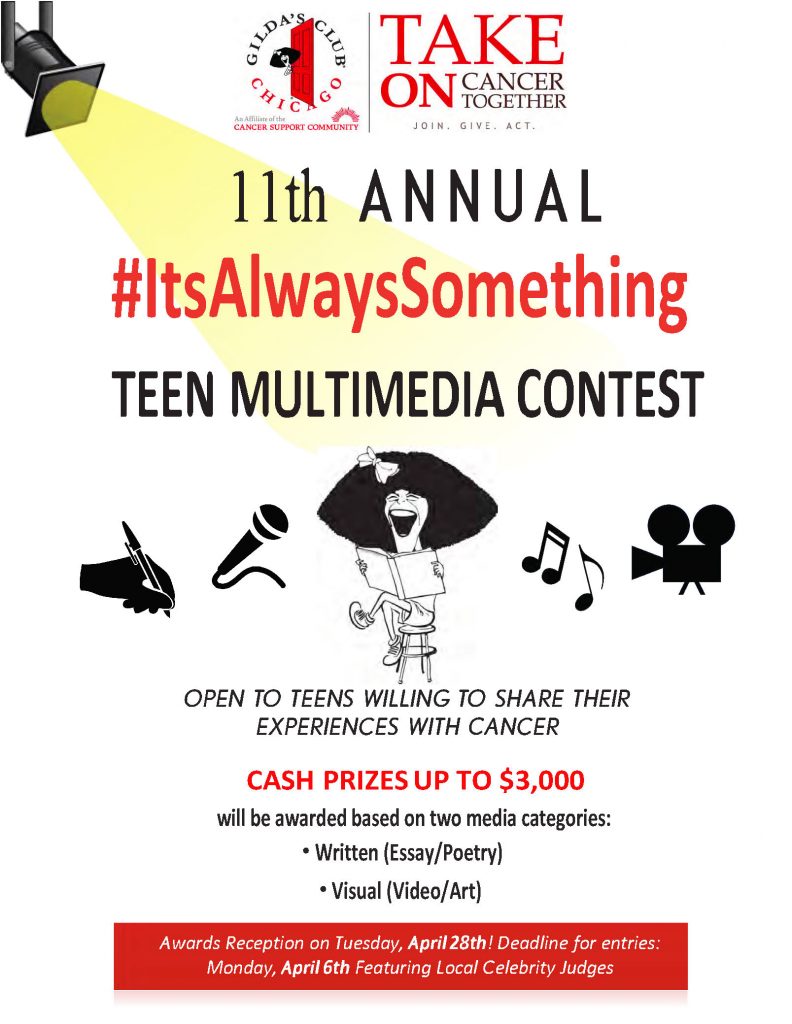
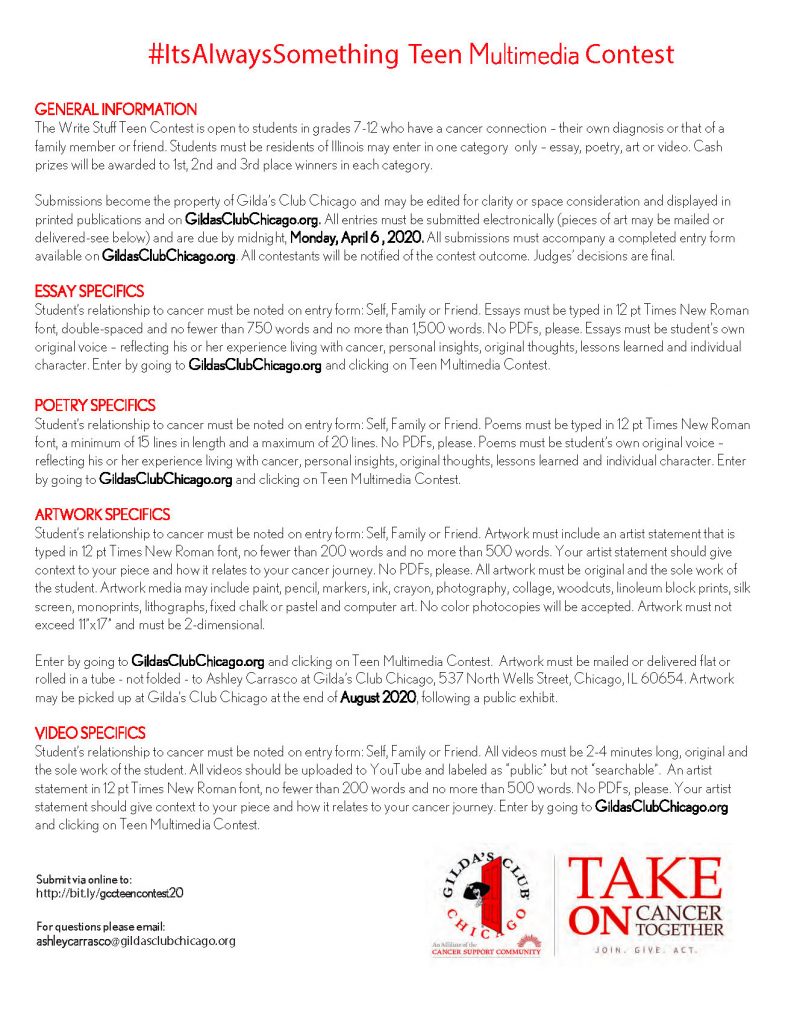
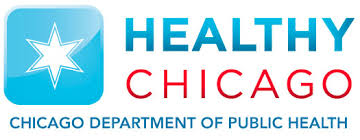
What is 2019 Novel Coronavirus (2019-nCoV)?
2019 Novel Coronavirus, or 2019-nCoV, is a new respiratory virus identified in December 2019 as the cause of an outbreak in Wuhan, Hubei Province, China. 2019-nCoV has resulted in thousands of confirmed cases in China, with additional cases being identified in a growing number of other countries.
The first case in the United States was announced on January 21, 2020 and the first case in the Chicago area was announced on January 24, 2020, in a person who had traveled to Wuhan, China. The second case was announced on January 30, 2020, in a close household contact. This is also the first case of human-to-human transmission in the United States.
The latest situation summary updates, including the number of cases identified in the United States, are available on CDC’s web page 2019 Novel Coronavirus, Wuhan, China.
What are the symptoms of 2019-nCoV?
People who get sick with 2019-nCoV develop mild to severe respiratory illness with symptoms including fever, cough, and difficulty breathing. Many common illnesses can cause these same symptoms. Individuals who have these symptoms and have traveled to Wuhan, China or have had close contact with someone with 2019-nCoV should be seen by a doctor or medical professional.
CDC believes at this time that it takes between 2 and 14 days to develop symptoms of 2019-nCoV after being exposed to the virus. Novel coronavirus can only be diagnosed through a laboratory test.
How does the virus spread?
Although this virus likely emerged from an animal source, it can also spread from person-to-person. Some viruses are highly contagious (like measles), while other viruses are less so. It’s not clear yet how easily 2019-nCoV spreads from person-to-person.
The main way most coronaviruses (including the common cold) spread is through the droplets produced when an infected person coughs or sneezes. In other coronavirus outbreaks, spread has generally occurred between close contacts.
What is the treatment for 2019-nCoV?
There is no specific medicine to treat 2019-nCoV infection at this time, though studies are underway. People sick with 2019-nCoV should receive supportive care from a health care professional. Supportive care means care to help relieve symptoms; for example, medicine to bring down fevers, or oxygen if a patient’s oxygen level is low.
How worried should I be about this novel coronavirus in Chicago? How can I protect myself and my family?
Currently, the health risk to the general public from novel coronavirus remains low, both in the U.S. and in Chicago. At this point, there is no need for the general public in Chicago to change their behavior in any way related to this virus. The Chicago Department of Public Health takes new viruses very seriously, is monitoring the situation carefully, and will rapidly communicate any changes in this guidance.
As with any respiratory virus, you can protect yourself and others by taking everyday common sense actions:
What can travelers do to protect themselves and others?
The Chicago Department of Public Health recommends avoiding non-essential travel to China. Chinese officials have closed transport within and out of Wuhan and other areas in Hubei Province, including buses, subways, trains, and the international airport. The latest travel updates are available on CDC’s web page Traveler’s Health. If you must travel:
What if I recently traveled to China?
Any travelers returning from mainland China on or after February 3should stay home and monitor their health for up to 14 days after leaving China.
Travelers who returned from mainland China prior to February 3 can remain in school and work. If you feel sick with fever, cough or difficulty breathing, you should.
For more information, please visit the CDPH’s website or the CDC’s website, email coronavirus@chicago.gov, or call 312-746-4835.
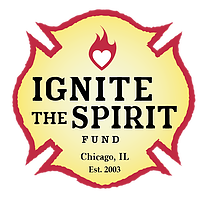 Ignite The Spirit, the Chicago Fire Department Charity
Ignite The Spirit, the Chicago Fire Department Charity
It’s not too late to support our first responders from the Chicago Fire Department who are there for us every day, by purchasing the 2020 Firefighter and Paramedic Calendar.
Explore the website to learn more and to find out how you can get involved either through volunteering, attending an upcoming event or by making a donation.
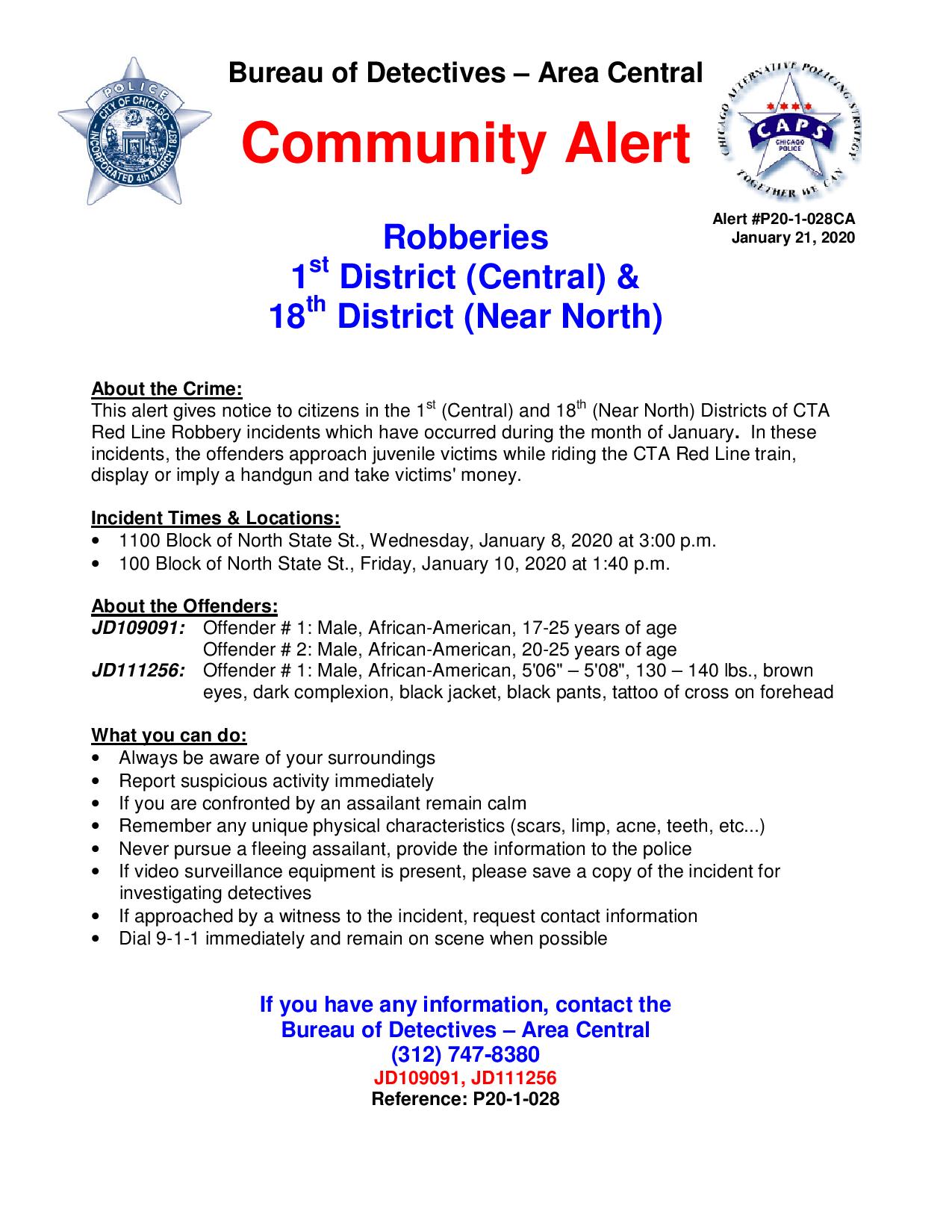

As of January 1st, recreational consumption, possession, and sales of cannabis products are legal in the State of Illinois.
Consumption in public is illegal. This includes streets, parks, and areas adjacent to dispensaries. Consumption on private property is permitted, subject to the discretion of the property owner. Cannabis may not be consumed in any vehicle, regardless of whether it is running. Driving under the influence of cannabis is illegal and constitutes a DUI. Cannabis may not be consumed in any vehicle, regardless of whether it is running.
While cannabis is legal in Illinois, it remains illegal under federal law. Cannabis purchased in Illinois cannot be transported to another state. Cannabis may be purchased at licensed dispensaries
Additional Information:
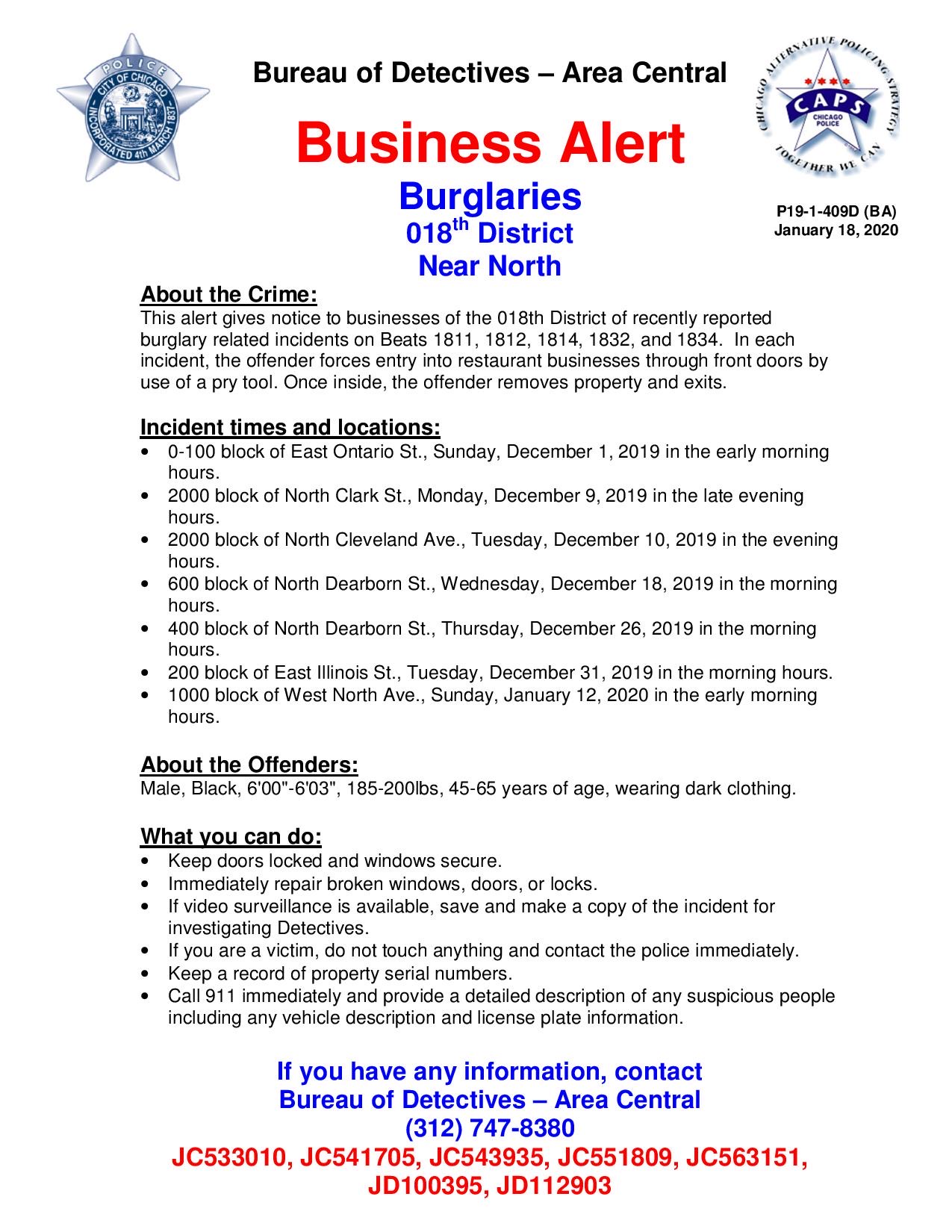
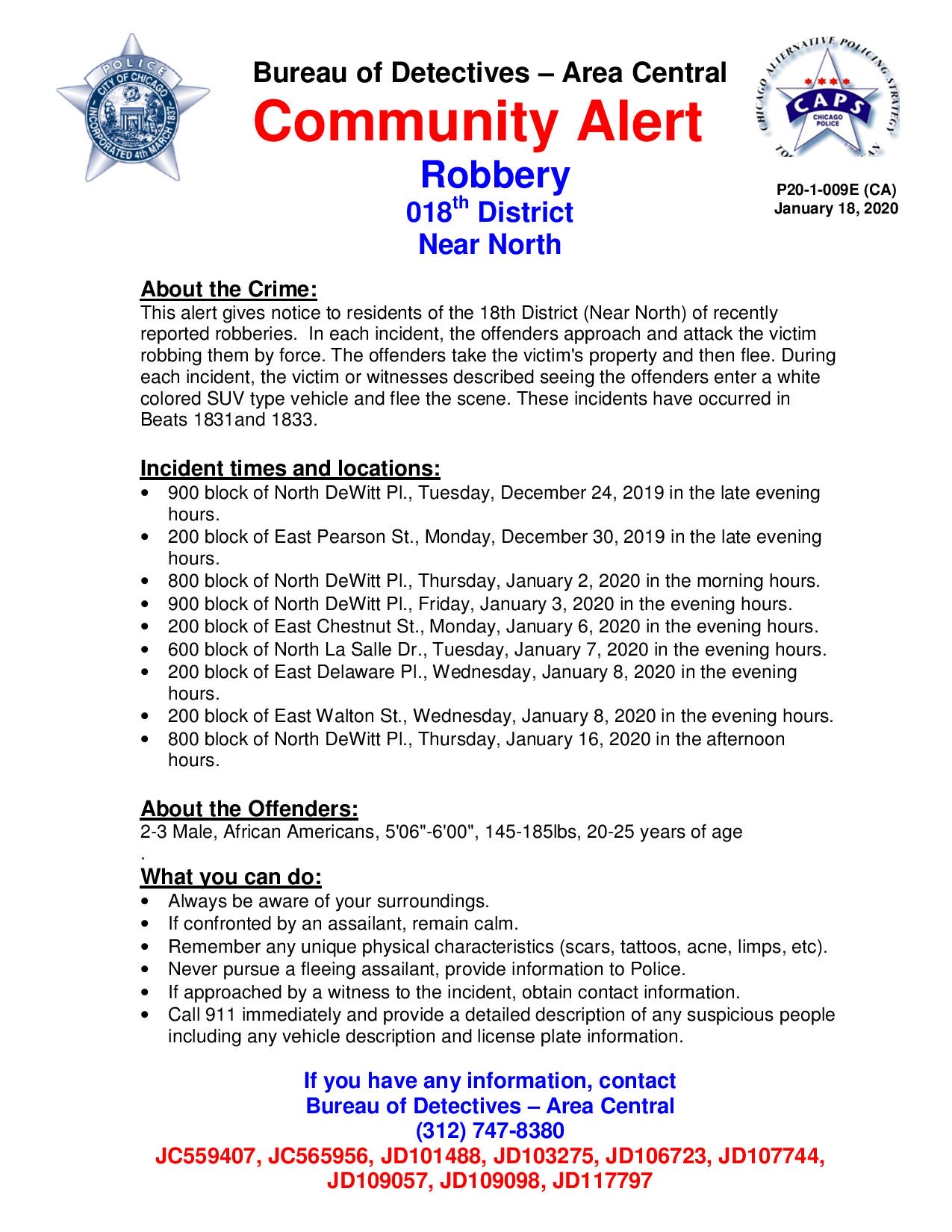
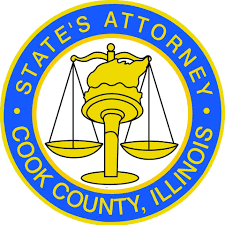
Hear candidates for State’s Attorney of Cook County and their plan for bringing forward community safety solutions. Lexi Sutter, Emmy Award winning journalist and Gold Coast resident will moderate.
7:30 p.m. – 9:00 p.m.
First St. Paul’s Lutheran Church
1301 N. LaSalle Dr.
Candidates that will be answering questions during these Community Forums are:
Christopher Pfannkuche – January 21
Bob Fioretti – January 22
Pat O’Brien – January 30
Bill Conway – February 12
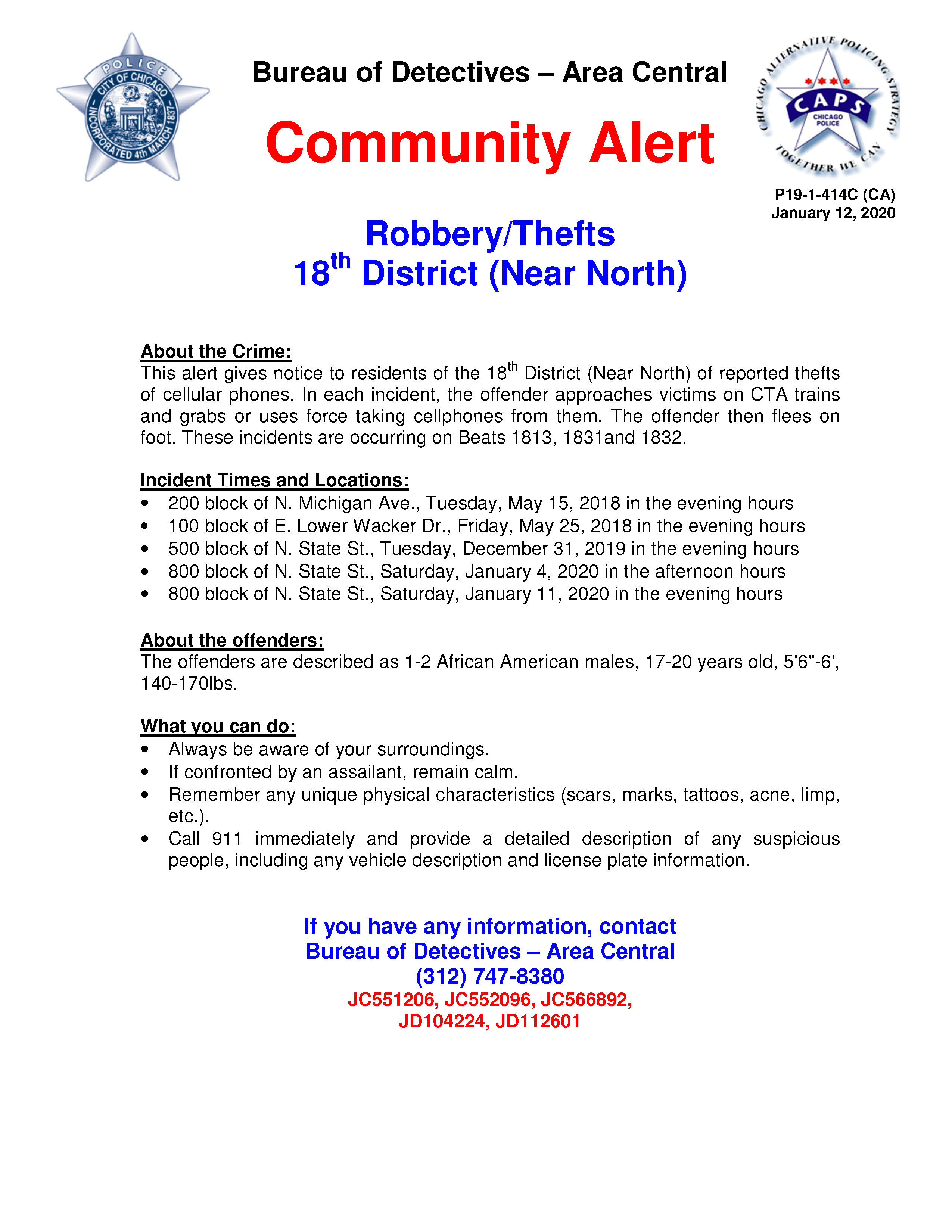
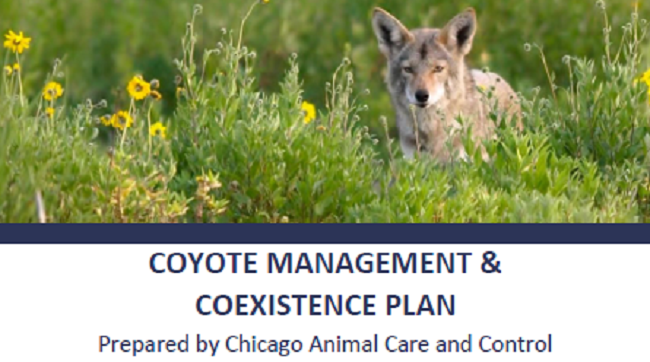
Chicago Animal Care and Control have been conducting searches in multiple lakefront neighborhoods for coyotes on the loose. After the capture of one coyote, DNA tests are underway to determine if a coyote captured on Chicago’s North Side is the same animal that attacked a 6-year-old boy in Lincoln Park. That test is expected to take weeks to complete.
The animal was captured after being chased by Chicago police and animal control officers for several blocks. It was shot with a tranquilizer dart and taken in an animal control van to the animal rehabilitation center, where it will be held until the DNA tests are completed. Eventually the coyote will be relocated outside the city.
If you find injured or trapped wildlife, wildlife that poses an imminent hazard to public health or safety, or wildlife in your home, please contact 311 and Chicago Animal Care and Control will respond. The Illinois Department of Natural Resources is authorized by the Wildlife Code to manage wildlife and regulate the taking of wildlife in Illinois.
The best protection you can offer to your pets is to never leave them unattended in a park or yard (even with a fence – coyotes are excellent jumpers) and always keep dogs on a leash when walking them. It is also the law that your pets must be leashed in parks or on sidewalks, with the exception of specially designated dog-friendly areas (DFAs).
For more information on coyotes, please read the Coyote Management and Coexistence Plan prepared by Chicago Animal Care and Control.
Source: Alderman Hopkins 2nd Ward Newsletter – January 13, 2020




























































